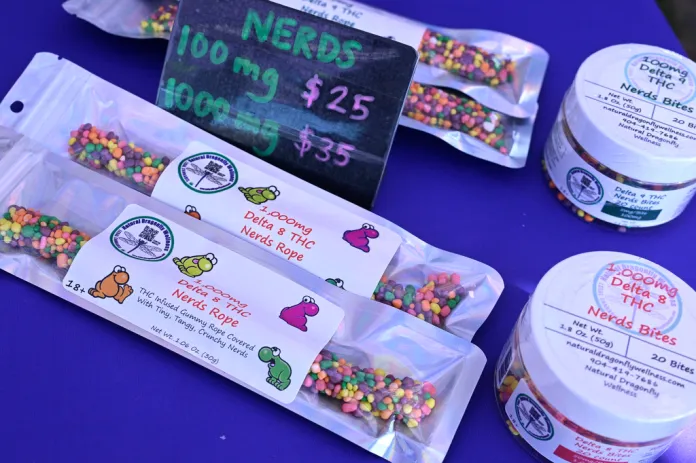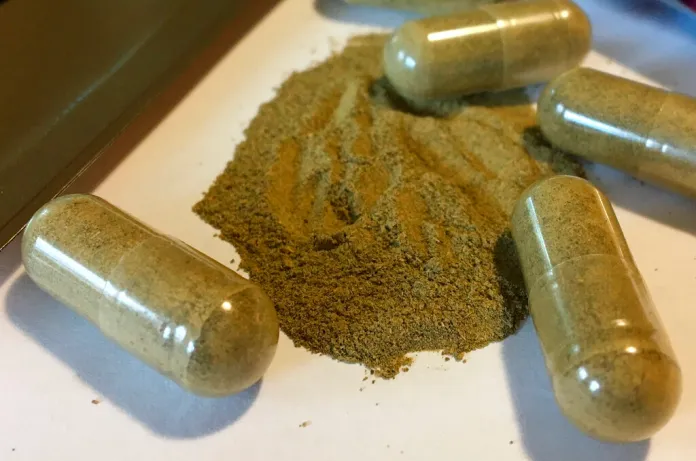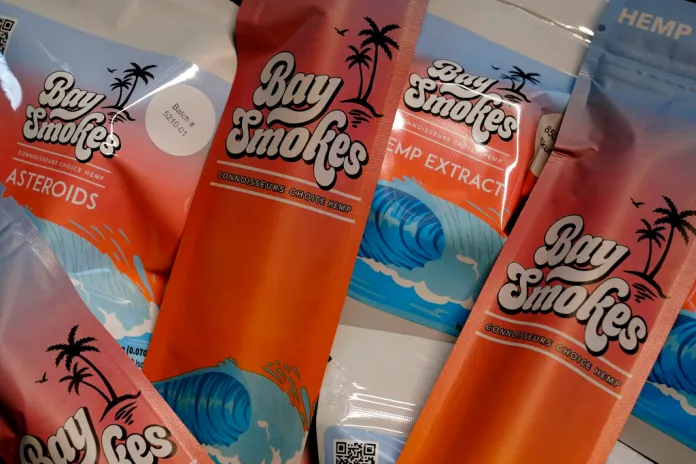Hemp-derived THC products could be on the chopping block as senators made progress on a deal to end the government shutdown.
Late Sunday, enough Democrats split from their caucus to join Republicans in voting 60-40 to allow a vote on an updated stopgap funding bill. The deal included a continuing resolution to open the government through Jan. 30 and three full-year fiscal 2026 appropriations bills.
One of the three proposed full-year bills, the Agriculture, Rural Development, Food and Drug Administration, and Related Agencies Appropriations Act, contains language that would ban hemp products.
The bill “prevents the unregulated sale of intoxicating hemp-based or hemp-derived products, including Delta-8, from being sold online, in gas stations, and corner stores, while preserving non-intoxicating CBD and industrial hemp products,” according to the Senate Appropriations bill summary.

The clause was added after a loophole in the 2018 farm bill led to a boom in production of hemp-derived THC products sold in accessible places, such as convenience stores and gas stations, nationwide.
The proposed bill would edit the current law by adding different parameters to the definition of “hemp.”
Luke Niforatos, the executive vice president of Smart Approaches to Marijuana, a nonprofit organization that has guided lawmakers on the topic of hemp regulation, walked the Washington Examiner through the changes and what they mean for Americans.
“This new language sends a clear message that the intent of Congress was never to legalize marijuana through the hemp loophole, and any intoxicating product derived from hemp is effectively banned,” Niforatos said. He wrote on X that delta-8 and other hemp derivatives will “soon be banned nationwide.”
The current legislation legalizes dry-weight hemp products with less than .3% THC, and the changed legislation would dig further than that. Niforatos said the original intention behind the legislation “was not to legalize intoxicating products, but that was the outcome.”
“Our language sets a limit of 0.4 mg of total hemp-derived THC per container, effectively banning the vast majority of intoxicating hemp products on the market. For example, one seltzer or one bag of gummies can contain no more than 0.4mg,” he said.
After hemp, Niforatos told the Washington Examiner that his organization plans to prioritize the elimination of unregulated kratom, noting, “We are working with Senate partners on a bill to schedule it.”
Niforatos wrote an op-ed in May arguing that “opioid-like” kratom should be banned in California because it contributes to hundreds of overdose deaths.

The hemp industry has been raising alarm bells about the possibility of a hemp ban in recent weeks. The U.S. Hemp Roundtable, an industry advocate, called the inflection point “DEFCON1 for hemp” in a post on X.
“We are at a pivotal point. WEIGH IN TODAY to help take the hemp ban off the table once and for all,” the organization wrote on Friday.
The Texas Hemp Business Council argued that the changes within the appropriations bill include “industry-killing language.” They added that cutting down the existing .3% THC limit to 0.4 mg, “would render previously compliant hemp genetics suddenly illegal — effectively wiping out years of agricultural progress and investment.”
The proposed appropriations bill as a whole “would fundamentally redefine hemp in ways that threaten hundreds of thousands of jobs, billions in economic activity, and the livelihoods of farmers, manufacturers, and retailers across Texas and the nation,” the council wrote in a release.
However, Niforatos said the proposed legislation means “protection, safety, and real public health” for Americans.
“These changes are crucial because hemp-derived Delta-8 and Delta-9 THC, two of the most popular drugs this industry pushes, are linked to horrific physical and mental health consequences — everything from hallucinations, vomiting, tremor, anxiety, dizziness, confusion, and loss of consciousness to severe psychosis-like events and severe illness and hospitalizations for children,” he said.
CBD may face a short-term ban as a result of the bill until the Food and Drug Administration approves dietary guidelines. Niforatos said this is because “the CBD products right now are not technically legal. But this law preserves CBD.”

Sen. Mitch McConnell (R-KY) has been at the helm of the fight to increase regulation on hemp-derived THC products, according to Politico.
The Texas Hemp Business Council called out McConnell on X, writing, “@SenMcConnell with nothing to lose in his final lap, quietly slips a hemp ban back into the funding bill. Legacy move: torch a $28B industry, ax 300K+ jobs, fuel black markets, and tell veterans, farmers, & responsible adults to pound sand. Bold way to say ‘Big Pharma only.’”
McConnell’s office did not respond to the Washington Examiner‘s requests for comment.
On Monday, Sen. Rand Paul (R-KY) introduced an amendment to the bill that would strike the hemp ban language, continuing the fight for its inclusion.
GOVERNMENT FUNDING FIGHT ENDANGERS TRUMP’S MARIJUANA RESCHEDULING PUSH
The proposed appropriations bill would also ban any intermediate hemp-derived products, which essentially means sellers would not be able to “isolate hemp-derived THC, put it into a powder, and sell it in salt packages, capsules, or other vessels,” Niforatos said. “This would effectively prevent Kool-Aid-style THC mixes from being on the market.”
The Senate Appropriations Committee did not respond to the Washington Examiner‘s requests for comment.
